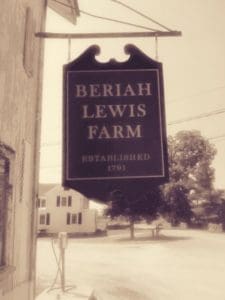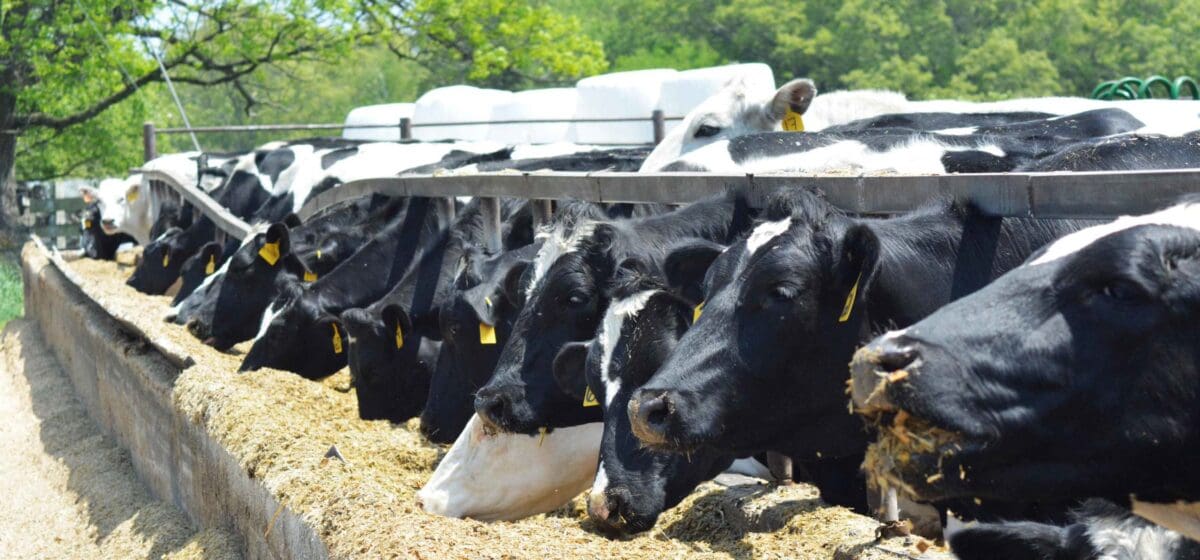Beriah Lewis Farm began operation in 1791. For perspective: George Washington was in the White House, Vermont was admitted as the 14th state, and the Bill of Rights was ratified by Congress.
We’re a society of disposable this and instant that, so when you come across something that has lasted over 230 years, well, attention must be paid.

More than two centuries later, the Lewis family continues to live and love their patch of land in North Stonington, CT.
The farm today includes 700 acres, a milking herd of 350 cows and related operations overseen by matriarch Rosalind Lewis and sons Ledyard and Harry. The family has continuously improved the farm over each generation: back in 1988, David Lewis and his three sons toured progressive farms across the country before choosing to build the first rapid exit milking parlor in Connecticut.
Other improvements followed. Pennsylvania Amish contractors were hired to build the well ventilated free stall barn, which features gravity-flow manure channels underneath the slotted barn floor, leading to an in-ground concrete liquid-manure tank. A new milking parlor has been completed in recent months, and the installation of a solar panel array is the next project, says Ledyard.
In addition to milk production, the Beriah Lewis farm includes oxen entered in regional pulling competitions, beef animals and pigs. The farm is also open to school groups for tours, showing the next generation a working farm.
In 2015, The Beriah Lewis Farm was named the Connecticut Dairy Farm of the Year and received a Green Pasture Award. This award is given every year to one outstanding dairy farm in each of the New England states, with winners evaluated on production records; herd, pasture, and crop management; environmental practices; contributions to agriculture and the local community; and overall excellence in dairying.
“The Connecticut Green Pastures judges were impressed with the animals’ comfort and the farm management,” says Joyce Meader, a Cooperative Extension dairy/livestock educator who helped coordinate the judging process. “Clean cows, an efficient milking environment, and conservation of nutrients for crop production are the result of the farm’s continuing innovations.”

